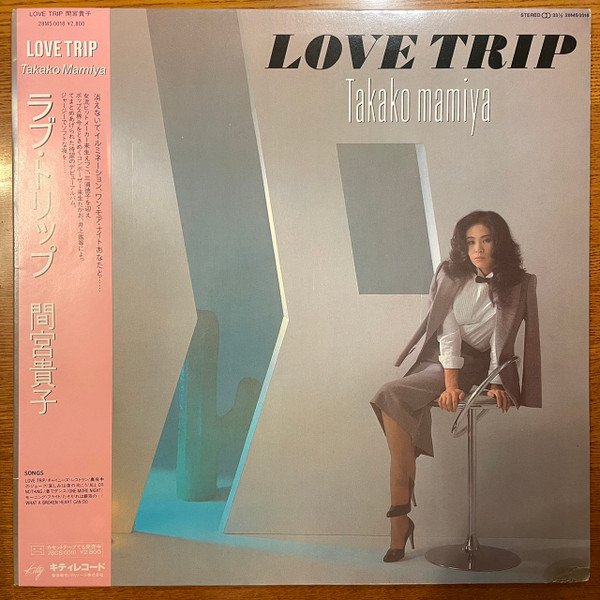My mission
I first became interested in 70s and 80s Japanese music in 2020, starting with Flyday Chinatown by Yasuha, but I really fell in love when I discovered Love Trip by Takako Mamiya.

Love Trip - Takako Mamiya
Love Trip (1982)
I really cannot overstate how much this blew my mind at the time, and it really still does. I had never heard it in my life, but somehow it instilled some unknown feeling of nostalgia into me. Finding this album completely reshaped my experience during quarantine, and I can say without fear of being too dramatic that it changed my life.
Since then, as I have continued to discover so much more incredible Japanese music, I've begun to realize that by saying I love Japanese music I am really turning an entire country into a genre. You'll notice I've avoided the term "city pop" thus far, and for the same reason. The idea of this blog is to attempt to clear the aesthetic smog surrounding the Japanese music scene (mainly in the 70s and 80s) by documenting the findings of my casual research. Currently, this is mainly things like connections between Japanese artists with other artists both inside and outside of Japan. The US has a kinda strange relationship with Japan now, and I believe the key to understanding that relationship is observing how it changed over time with the influence of music (and video games too!). I'll also be trying to look at the pop charts in Japan in the 70s and 80s to try and understand what was really popular at the time versus what Japanese music is popular in the US now because of YouTube.
So I guess in short my mission is to really understand the Japanese music I listen to and describe how it relates to the exchange of culture between the US and Japan. Enjoy!